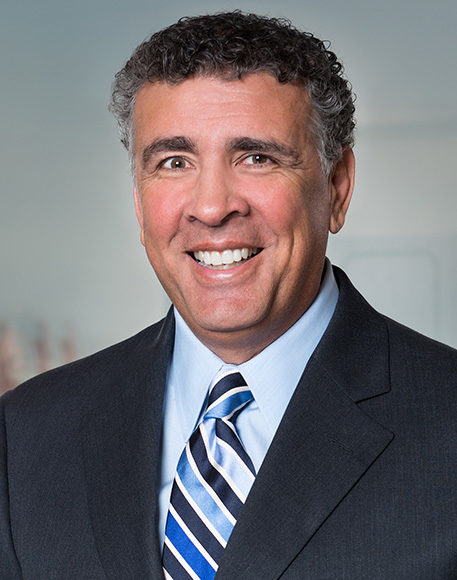How to File a Nursing Home Neglect Complaint: A Step-by-Step Guide
 When you choose to put a loved one in a nursing home, you expect them to be treated with dignity, receive the medical care they need, and benefit from compassionate care. When you notice bedsores, declining hygiene, and listlessness in your loved one, the facility might wave it off or attribute it to medical issues. Even if you don’t have proof of your suspicions, your instincts may be cluing you into the fact that something is wrong.
When you choose to put a loved one in a nursing home, you expect them to be treated with dignity, receive the medical care they need, and benefit from compassionate care. When you notice bedsores, declining hygiene, and listlessness in your loved one, the facility might wave it off or attribute it to medical issues. Even if you don’t have proof of your suspicions, your instincts may be cluing you into the fact that something is wrong.
If you suspect neglect or abuse of a loved one in a nursing home facility, you don’t need concrete proof before you take action. Call Garcia & Coman to discuss your legal options with our nursing home neglect team right now.
Step 1: Recognize signs of neglect and abuse
First, make sure you know the warning signs of neglect and abuse so you can take action early. Warning signs of neglect include poor hygiene, bedsores, untreated wounds, unexplained injuries or hospital trips, dehydration, sudden weight loss, overmedication, emotional withdrawal, and changes in behavior. While many of these signs can also be linked to dementia or other medical issues, seeing multiple signs together is a real indication that something may be wrong.
Step 2: Document everything you can
The moment you suspect neglect, take steps to document it thoroughly. Documentation strengthens your complaint—facilities and agencies take you more seriously if you can give specific dates, times, and observations, rather than general observations and feelings. Consider keeping track of:
- Dates and times of concerning events
- Symptoms or injuries that worry you
- Photos of bedsores, bruises, and unsafe conditions
- Names of involved staff
- Conversations with caregivers and management
- Copies of medication logs and incident reports
Consider keeping a separate notebook or digital document solely to log your concerns so you can reference them easily as needed.
Step 3: Report internally first (if it’s safe to do so)
If it’s safe to do so, escalate the issue with the facility itself. Issues may result from miscommunication or isolated incidents that the facility can resolve when given a chance. This often happens when a facility is going through a transition or a sudden influx of new staff. While these situations don’t excuse neglect, they may be the reason for an isolated incident and not a chronic issue. Depending on the chain of command at your loved one’s facility, you may want to talk to the nursing supervisor, charge nurse, facility administration, director of nursing, or on-staff physician.
You may want to request a care plan review meeting to discuss incident reports and potential changes to your loved one’s care. Be prepared to push for answers if necessary. Facility representatives may try to downplay concerns or question your observations, but your loved one is counting on you to advocate for them.
Step 4: File a complaint with the appropriate agency
Filing an official complaint holds the facility accountable. Official reports often lead to government investigations, inspections, and disciplinary action. Every state has its own agency that handles these complaints, and when you work with a nursing home neglect attorney, we can help you file your complaint with the appropriate agencies.
You may want to start with your state’s long-term care ombudsman. An ombudsman can act as a go-between between you and the facility to solve issues and assert your loved one’s rights. You can also look into your state’s nursing home licensing agency. For example, California has the Licensing and Certification Program in the Department of Public Health, Texas has the Texas Health and Human Services Commission, and Florida has the Florida Agency for Health Care Administration. Complaints to official government agencies may stay with the facility, so if there’s a pattern of neglect or abuse, it is much easier to identify it with official records.
If your loved one is in immediate danger, you should reach out to an attorney and your state’s adult protective agency. These agencies protect vulnerable adults from abuse and neglect.
Step 5: Know what to expect after you file
The agency with whom you file your report should tell you what to expect. An investigator may contact you for more details or to look at your records, or an agency may perform a surprise inspection. Staff and administrators will likely be interviewed, and the investigator will likely audit their records and documentation.
You may receive an official notification of their findings and the outcome of their investigation. Agencies try to address these issues as quickly as possible, but backlogs may lead to delays. Facilities that have been negligent may face citations, penalties, enhanced training requirements, or even closure.
Step 6: Decide when to contact a nursing home neglect attorney
It may be time to talk to a nursing home neglect lawyer if your loved one has experienced serious physical or mental harm as a result of their neglect—for example, broken bones, serious infections, hospitalization, or depression. These issues could have been prevented had the facility provided proper care, and they should be held accountable. The sooner you reach out to an attorney, the sooner they can move to preserve records and evidence, explore every legal avenue available to you, and seek compensation for your loved one.
Protect your loved one with aggressive and experienced legal representation
Families may hesitate to report neglect because they aren’t sure they have enough evidence. But you don’t need ironclad proof to protect your loved one. With your observations, the right documentation, and legal guidance, you can take action. Contact us online or call us now.

Stephen M. Garcia represents victims of elder and nursing home abuse and is known as one of the leading civil litigators in the country. He is Senior Partner at Garcia & Coman, where the firm’s practice is focused on elder abuse, nursing home abuse, and wrongful death of the elderly.
Find out more about Stephen M. Garcia

